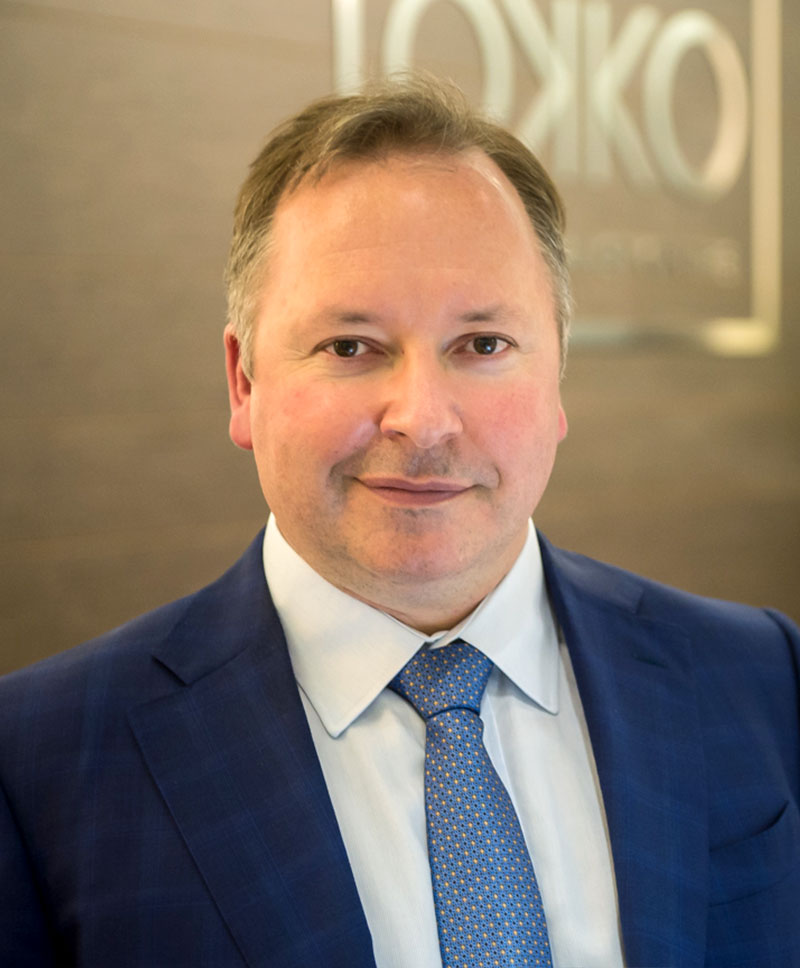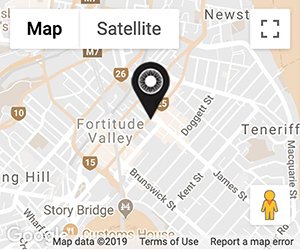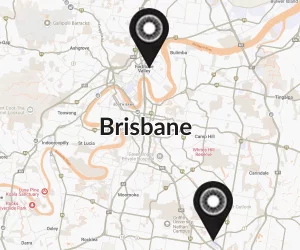
How 5 Queenslanders discovered the best laser eye surgery procedure for them
Choosing laser eye surgery today is like ordering coffee from your local independent cafe. What coffee would you like, Madam? Latte? Flat White? Macchiato? Mochaccino? Iced, Half Caff, Ristretto, Venti, 4-Pump, Sugar-Free, Cinnamon, Dolce Soy Skinny Chai?
The overwhelming selection and obscure names can leave you feeling bored and befuddled. All you want is good old fashioned eyesight! Is that too much to ask?
Coffee and laser eye surgery have more in common than you might think. They both enable you to function more effectively, can lift your mood and prevent you from doing something silly. The major difference is that one of them costs a damn sight more and involves a beam of light so precise, that it is capable of etching a pattern into the layers of a human hair follicle. If you can’t work out which one I’m talking about, then your eyes might not be the problem.
So why are there so many different types of refractive surgery and how does one go about choosing the best one? The answer to that question depends on two very important factors; the condition of your eyes and your eyesight goals and motivations.
Laser eye surgery, like coffee, depends on your personal tastes.
Do you like to dance, work out or do yoga? Perhaps you prefer sitting down with a good book, completing a crossword or painting a picture? Or maybe you like to do all of those things as a when you feel like it.
Whatever you like to do, you need to have the correct vision to do it properly, and that’s where the different types of vision correction come in.
At VSON laser eye surgery clinic, we offer a range of the latest laser eye treatments, capable of achieving life-changing results to suit your unique lifestyle and vision needs. Let’s discover together how to choose the best laser eye surgery procedure.
So which type of laser eye surgery procedure would suit you?
To better answer this question, let me introduce you to four Queenslanders. Each one came to VSON with a unique pair of eyes, goals, motivations and lifestyle.
We were able to assist them in making one of the best decisions of their lives, to break down the barrier between them and the word and enable them to face their futures without the hassle of needing to wear glasses and contact lenses.
Meghan felt like she was missing out
First up is Meghan. Meghan was 34, she was short-sighted and had worn glasses and contact lenses her whole life. She enjoys working out at the gym, doing a weekly yoga class and going out with her friends. The problem was, glasses were always getting in the way, steaming up, falling off and, making her feel unattractive.
Contact lenses weren’t much better as she would get the occasional eye infection and they would slip about and irritate her eyes. The prospect of her ever fulfilling her dream of learning to surf was looking slim. Or was it?
A stable vision prescription, generally healthy eyes and normal cornea meant that Mehgan was an ideal candidate for LASIK surgery.
LASIK (Laser assisted in situ keratomileusis) is among the most successful elective laser vision correction surgery procedures. After a procedure that lasted less than 10 minutes, Meghan walked out with 20/20 vision. She now has the confidence and freedom to travel the world, learn to surf, and perform any physical activity she wished to pursue.
Gerry felt old and encumbered
Next up we have Gerry. Gerry was 55, short-sighted with astigmatism and presbyopia, meaning that he needed several pairs of glasses. Not ideal for someone whose job required them to travel internationally to educate students. Gerry’s glasses not only encumbered him, but they made him feel way too old for his age.
Because Gerry was over 45 and had a reading addition of around +1.5D, he was the perfect candidate for PresbyMAX. With this treatment, Gerry’s near and intermediate vision returned pretty much immediately. Now, Gerry was able to resume work on his computer on his flight to Dubai. His briefcase was roomierr without all his glasses, and the students barely recognised his new youthful appearance.
Barbara felt like her world was shrinking
Then we have Barbara. Barbara was 67 with cataracts and consequent dependence on glasses. If she wasn’t losing her glasses, she was breaking them, and this was really getting in the way of her writing pursuits.
Because Barbara was over 50 years of age and wasn’t a big fan of her glasses, we suggested that she underwent refractive cataract surgery. This is a one-off treatment which would remove her cataracts for good and improve her vision without the need for glasses.
After removing her cataracts, we inserted a special multifocal lens so that she could see at all distances. It wasn’t until after the surgery that Barabara realise how bad her vision had become. She felt that colours were much brighter and could continue writing without her glasses – something she hadn’t been able to do for many years.
David felt like he wasn’t on a level playing field
David, 38, suffers from long-sightedness and is relatively new to the glasses and contact lenses scene, and due to this had some more unique challenges. He played a lot of rugby, struggled to put in his contact lenses, and suffered from dry eye.
Now, David had thin corneas and was at a higher risk of flap-related complications due to his high-contact hobbies. Not a problem! With PRK, we corrected his refractive error giving him high definition vision without the inconvenience of corrective eyewear.
After a slightly longer recovery period of a week, David was back scoring tries.
Cate felt worried about her future
Finally, we have Cate, 23, who was severely short-sighted with irregular astigmatism. She had worn very thick glasses since she was a child and contact lenses weren’t an option.
Cate enquired about having vision correction with another local clinic, but they told her that she wasn’t suitable. She was due to start a university course in a few months, and the prospect of having to go wearing her thick coke-bottle glasses made her feel uncomfortable and anxious.
She had almost lost hope until she came across our online suitability test. Although her prescription meant that she was unsuitable for laser refractive surgery, the test recommended Implantable Contact Lenses (ICLs). She then came in for her free assessment at VSON, where we performed all the necessary checks and examinations to confirm that this was, in fact, the best treatment for her.
Cate had a brand new micro-thin lens inserted into her eye, improving her vision dramatically in just 24 hours. She was able to ditch her classes and went off to university, feeling confident and optimistic about her future.
Different treatments available
LASIK surgery compares more favourably with other elective surgical procedures in terms of generally higher satisfaction rates.
LASIK is a proven treatment to safely and effectively treat:
- Short-sightedness
- Long-sightedness
- Astigmatism.
PRK is LASIK’s predecessor. It’s still used today for patients that do not qualify for LASIK surgery. We offer TransPRK, which is a no-touch, all-laser and gentler version of PRK that offers the same results as LASIK.
PRK is a proven treatment to safely and effectively treat:
- Short-sightedness
- Long-sightedness
- Astigmatism.
If you have to deal with the hassle of corrective lenses, ditching them for perfect eyesight sounds like a dream come true. The best way to achieve that goal is through laser eye surgery. There are a few different laser procedures to choose from, three of the most common being PRK, LASIK, and SMILE. Even if you think your eyes are too difficult to correct with surgery, this may not be the case.
How laser eye surgery works
We can perform this treatment on an outpatient basis. We will completely numb your eyes with anaesthetic drops, so you will not feel a thing. We can also give you a sedative medication to help you relax. The entire procedure takes about 5 to 15 minutes, and the laser treatment itself lasts less than a minute. Surgery is over before you know it.
Step 1 – Creating the flap
The first step of treatment is to create flaps in the cornea that are thin and hinged. The flap is created with a femtosecond laser. This thin flap is folded back to reveal the deeper layers of the corneal tissue.
Step 2 – Reshaping the cornea
Next, an excimer laser delivers pulses of light that precisely remove microscopic amounts of corneal tissue to reshape the cornea’s curvature. After we have reshaped the cornea, we restore the corneal flap to its original position over the eye, where it heals on its own.
Which eye surgery would suit you best? Find out for yourself
As you can see, no challenge is too big or small for us here at VSON. It is our priority to devise a treatment plan precisely tailored to your unique lifestyle, eyes and vision needs so that you can enjoy fantastic vision, free from the limitations of glasses and contact lenses.
To see if you are a good candidate for one of our life-changing treatments, take our online suitability test. Or, if you’re ready to see us, get a free assessment by calling us on 07 3738 5800, or get an appointment by filling in the form below. We would love to meet you and answer any questions you may have.
You only live once. It’s time to see what you’ve been missing.
Found this post useful? Please share!

Hi, I’m Dr. Matthew Russell, a laser and cataract surgeon
HI I’M DR. MATTHEW RUSSELL A LASER EYE AND CATARACT SURGEON
With over 15 years of experience, I enjoy the privilege of helping patients of all ages reclaim clear vision or preserve it for as long as possible.
Vision correction and high-precision cataract surgery hinge on the expertise and skill set of the provider who also has access to the most precise tools for the job. Ophthalmic surgeons like me know how to make treatment safe, comfortable and positive for the patient. They know how to minimise the risk of complications and maximise successful outcomes.
I have a passion for helping my patients enjoy the clear, high-definition vision they need to live rich and active lives. Now, I have hand-picked a team of professionals that share my passion and commitment to exceptional care.
Dr. Matthew Russell
MBChB, FRANZCO















